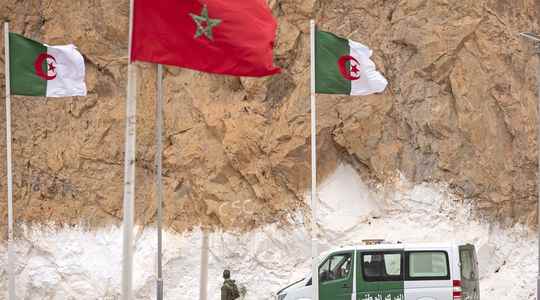Neighbors, mostly Arabs and Muslims, they are sometimes described as enemy brothers; Morocco and Algeria have indeed serious disputes that have already brought them to the brink of confrontation. But, on closer inspection, reproaches and claims come mainly from Algiers which, in 2021, unilaterally closed its border and broke diplomatic relations with Rabat. A resentment that feeds on the following realities and representations.
First, there is this condescension for a regime represented as archaic because monarchical, weak not to have been decolonized by war. And for good reason: the Cherifian dynasty succeeded in the feat – almost unique in the immense Arab space – of remaining independent from the Ottoman Turkish Empire and from the European powers, embodying (for only half a century) a simple protectorate until the return to full sovereignty in 1956. This posture, both “virile” and victimized by the Algiers regime, allows the caste of generals, in power almost without interruption since independence, to self-legitimize its own rule and repression of any dispute.
Nationalism and Third Worldism
Then, although officially non-aligned, Algeria always followed Moscow (and bought Russian) up to and including after the fall of communism, claiming Arab nationalism and Third Worldism – unlike Morocco, which has diversified its partnerships and maintained close ties with France and the United States. However, since the signing in 2020 by Rabat of the Abraham Accords (alongside the United Arab Emirates, Bahrain and Sudan) which imply peace and cooperation with Israel, the “Zionist entity” hated by Algiers has in turn become a privileged partner of Morocco, as recently illustrated by the official visit of the Hebrew Minister of Defense (and former Chief of Staff of the Tsahal) Benny Gantz.
Finally, the choice made by Mohamed VI to recognize not only symbolically, but also constitutionally a triple culture – Arab, Berber and Jewish – exasperates the Algerian power. Supported by a strictly state-national and Arab narrative, it has never settled its own Berber question socially or culturally, and fears a new Kabyle spring of unparalleled magnitude.
Bad choice
Finally, and perhaps above all, in geostrategic terms, Algeria would welcome “bi-oceanicity”, in other words privileged access to the Atlantic via a Saharawi state which would be indebted to it, if not subservient, as it would have supported its promoters. The annexation and solid control of the ex-Spanish Western Sahara by Morocco – already recognized by a number of capitals, including now Washington – obviously prohibit this prospect.
More prosaically, doesn’t the recurring bitterness of Algiers come from the failure of a regime that adopted a number of bad choices? The rejection of learning French after independence, which weakened the country’s commercial capacities and diplomatic aura – Arabic teachers “imported” from Egypt having brought with them the fanaticism of the Muslim Brotherhood by contributing to the terrible civil war of the 1990s; a rentier economic system, interventionist and corseted by the FLN and the army which weighed down a country nevertheless rich in hydrocarbons, whose fallout has never benefited the population – hence the recurrence and the force of social mobilizations until to the recent Hirak; the extreme political and military support for Sahrawi militants and the ineffective intransigence on the Israeli-Palestinian conflict, which isolates a little more diplomatically a State already surrounded to the east and south by failed states. ..
First victim, the Algerian people
Especially since opposite, without marketable natural resources (except the not very lucrative phosphates), Morocco has progressed in two decades, in terms of diplomacy, infrastructure or trade, in French-speaking sub-Saharan Africa in particular, s ‘offering the luxury of a fall without violence of the Islamist current in the last legislative elections.
Basically, if Morocco is the convenient scapegoat for this stubbornness in the failure of the Algiers regime, it is the Algerian people who are, alas, the victim.
